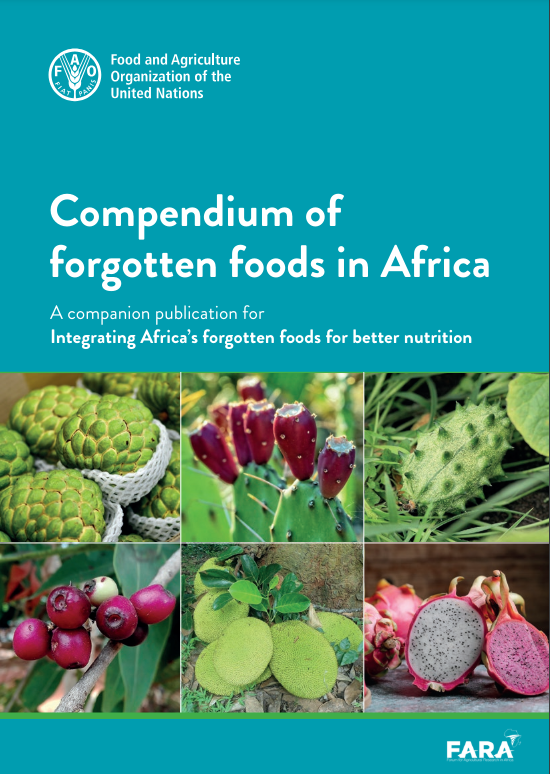Compendium of forgotten foods in Africa

The World Wide Fund for Nature defines a food system as “the complete set of people, institutions, activities, processes, and infrastructure involved in producing and consuming food for a given population.” (WWF, 2017). The food system has a bearing on human capital development, provision of jobs, industrial growth, structural transformation and ecosystem services. As in many other parts of the world, the landscape of African food systems is fraught with fragility and fails to deliver on these key developmental outcomes.
Transforming food systems in Africa is an imperative for the realization of the UN’s Sustainable Development Goals, which now has a delivery timeline of less than a decade.
A sustainability framework must underguard any attempts at food systems transformations. For example, Africa must provide food and nutrition security to its rapidly expanding population in perpetuity without engendering adverse environmental, social and economic externalities.
The massive endowment of the continent with extensive arable land and diverse agro-ecosystems teeming with rich flora makes sustainable food systems a realizable dream. Indeed, Indigenous communities across Africa have used a number of locally adapted crops for millennia mainly for nutrition, medicinal and ornamental purposes. Unfortunately, many of these crops, have been progressively substituted with imported genotypes favoured by industrial agriculture. Pervasive monoculture of the exotic crops and increasingly standardized diets have contributed in part to utter denigration of the indigenous crops, earning them the appellation of “forgotten crops.”